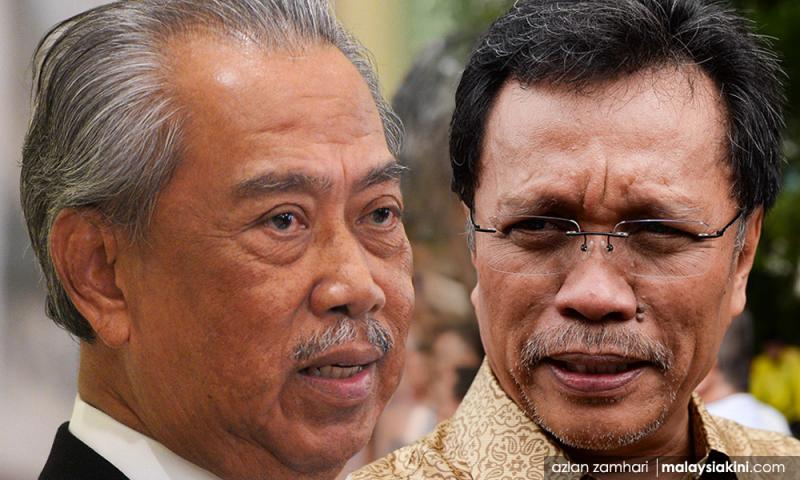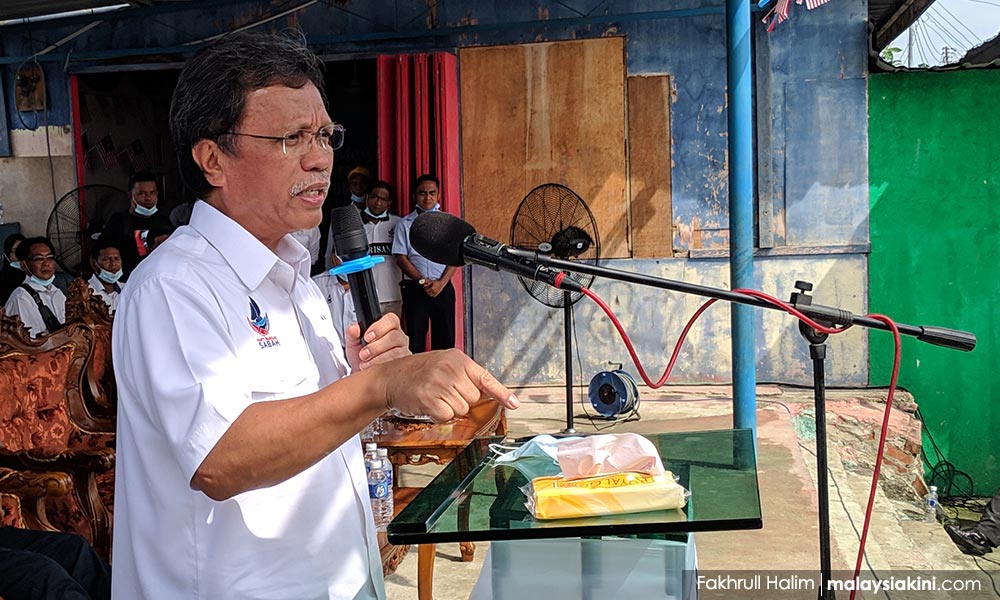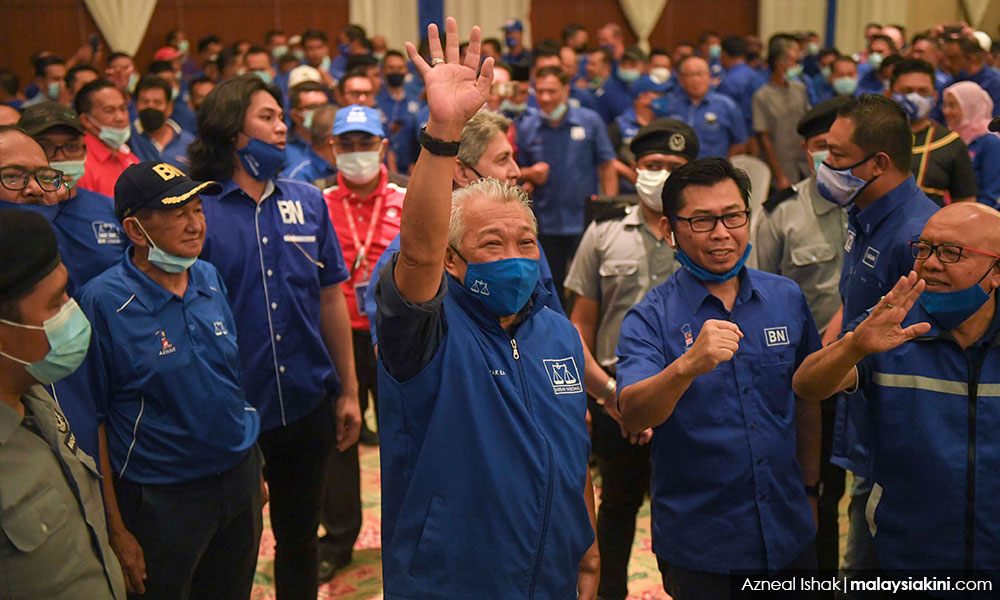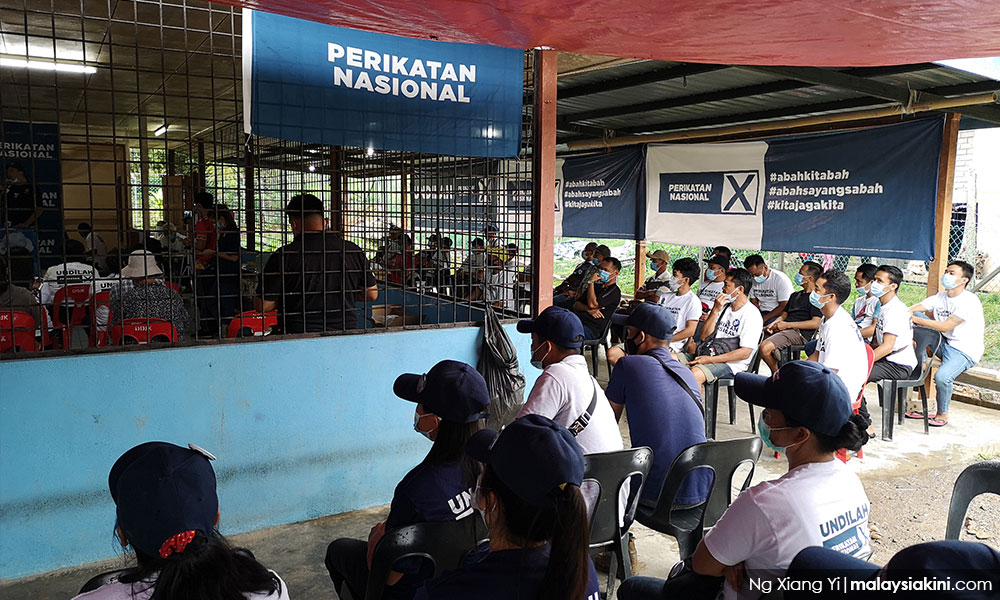Shafie hit by anti-migrant sentiment, Muhyiddin struggles to foster unity
SABAH POLLS | As the Sabah election campaign enters its final lap, both key contenders Warisan Plus and Gabungan Rakyat Sabah (GRS) are still grappling with perennial problems.
Warisan Plus, led by incumbent chief minister Mohd Shafie Apdal, continued to be dogged by anti-migrant sentiments, particularly along the west coast and interiors of Sabah.
In 2018, the party performed well in urban constituencies or constituencies with substantial Bajau voters, leading to a perception among the Kadazan Dusun Murut (KDM) communities that the party was dominated by those of Bajau-Filipino ancestry.
A straw poll by Malaysiakini at the KDM areas revealed that many voters believed Shafie had foreign ancestry, a sentiment which his opponents have been capitalising on.
Shafie has repeatedly refuted this claim, pointing out that the graves of his ancestors were located in Semporna, to the east.
"I was with BN before. When I was with them, I was called a fighter. Now that I am not with them, I am suddenly a foreigner," Shafie once complained during a rally. Shafie was the vice-president of Umno before he was sacked in 2015 and went on to establish Warisan.
The KDM community's distrust of those with migrant backgrounds stems from the notorious "Project IC" scheme in the 1990s. A Royal Commission of Inquiry had since determined that the project involved corrupt government officials who awarded citizenships to unqualified migrants, thus altering the demographics of the state.
Although Shafie (photo) was never blamed for the matter, he was part of the Pakatan Harapan government which attempted to document paperless migrants in the state, which detractors claim was part of a scheme to grant fast-track citizenship.
The documentation exercise, known as "Pas Sabah Sementara" (PSS or Sabah temporary pass), was handled by then home minister Muhyiddin Yassin, who is now the prime minister. The PSS scheme was scrapped by the Harapan government in January.
This issue was used extensively during the Kimanis by-election in January, which saw Warisan losing ground among the non-Muslim bumiputera community.
READ MORE: What is PSS and why is it important to the Kimanis by-election?
Spearheading the coalition's counterattack is the United Progressive Kinabalu Organisation (Upko).
Upko, which is part of the Warisan Plus coalition together with Warisan and Pakatan Harapan, has fielded 12 candidates in mostly KDM-majority constituencies.
But even in Upko strongholds such as Kiulu, there are murmurs of discontent among voters about the party's association with Warisan and problems caused by unwanted migrants.
Fractious campaign
Meanwhile, Muhyiddin's GRS is struggling to project a united and viable alternative to Warisan Plus.
The GRS coalition has component parties facing each other in 17 seats, while its three main components - BN, Perikatan Nasional, and PBS - are running mostly separate campaigns.
BN is pushing for its Sabah party chief Bung Moktar Radin (photo) to be the next chief minister if they win the election. They are also using the "Ubah balik" (Change back to BN) slogan during their campaign.
Meanwhile, PN has repeatedly highlighted Muhyiddin as their leader with a message centered on keeping good relations between Sabah and Putrajaya.
As for PBS, the party was relying on being the only true Sabah-based party in GRS as well as favourable sentiment from those who remember the party from its heyday in the 1990s.
Read more: Sabah Decides 2020: Making sense of the players, parties and battles
There was an effort to mend inter-party fissures last Wednesday with the launch of a joint "Aku Janji" (election pledge) attended by all three GRS entities.
This was followed by a low-key signing of an agreement between PBS and PN over a working relationship.
However, as of today, PBS has made clear they will not be withdrawing their candidates to avoid intra-GRS contests.
The intra-GRS troubles have become campaign fodder for Warisan Plus. Shafie, for instance, said a fractious coalition like GRS was not worth supporting as they are unlikely to be able to govern effectively.
Personalities and sentiments
With just five days of campaigning left, the contest may boil down to the popularity of individual candidates or the sentiments that voters have towards certain parties.
Media coverage of the campaign in Sabah's rural areas and interiors is rare with many candidates refusing to share their campaign itinerary with reporters.
With an average of only 18,000 voters per constituency, it is realistic for candidates to rely solely on pounding the pavement to meet voters rather than having a media outreach strategy, which is not entirely in their control.
Without media scrutiny, this gives rise to the possibility of "bombing" - a euphemism for vote-buying - as posited by researcher Bridget Welsh.
Malaysiakini also observed that voters tend to evaluate parties along implicit ideological lines. Parti Solidariti Tanah Airku (Star), for instance, was perceived as "anti-Malaya", which attracts support from those within the KDM community who harbour such sentiments.
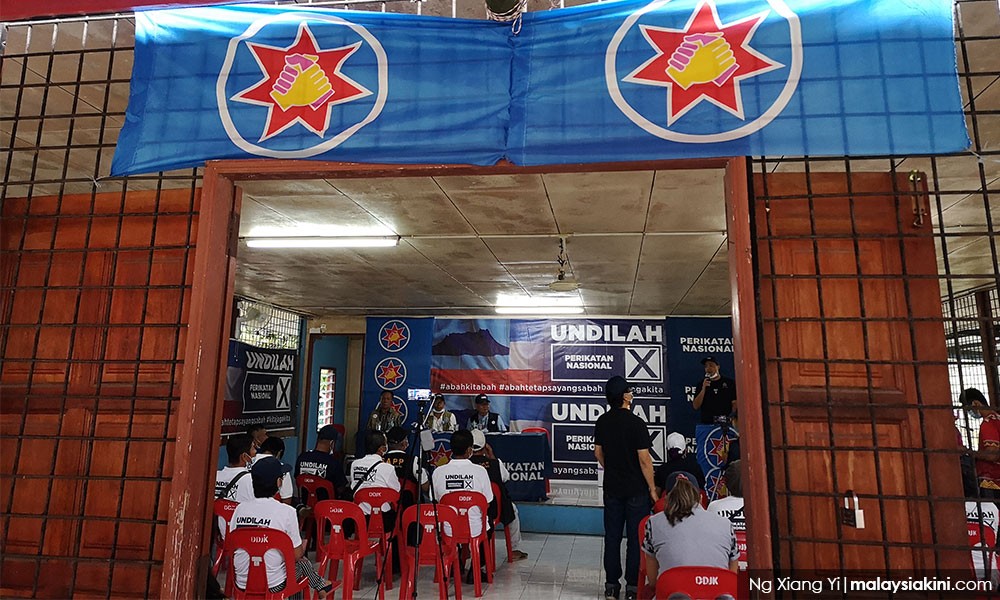
Sentiment-driven political decisions are not always informed decisions, as demonstrated by some voters interviewed by Malaysiakini who believed that Shafie was still an Umno member.
But politics in Sabah is fluid, as demonstrated by the many "shirt-changing ceremonies" taking place throughout the campaign, where defectors publicly embrace their new parties or leaders by putting on new colours over old ones.
This perhaps reflects the temporal nature of loyalties to personalities and parties, which may well carry over to the ballot box on Sept 26.
Follow Malaysiakini's coverage of the Sabah state election here.
RM12.50 / month
- Unlimited access to award-winning journalism
- Comment and share your opinions on all our articles
- Gift interesting stories to your friends
- Tax deductable
